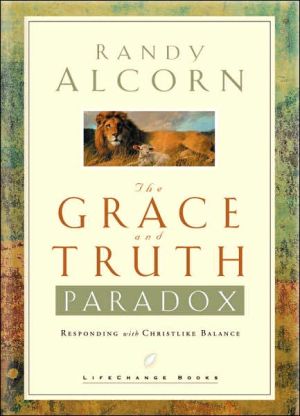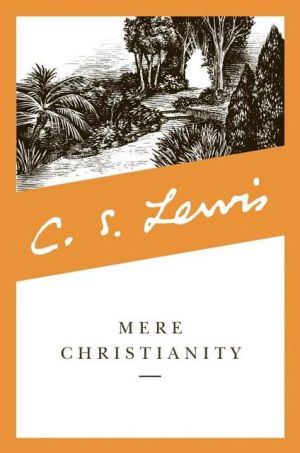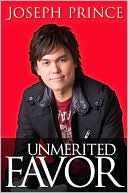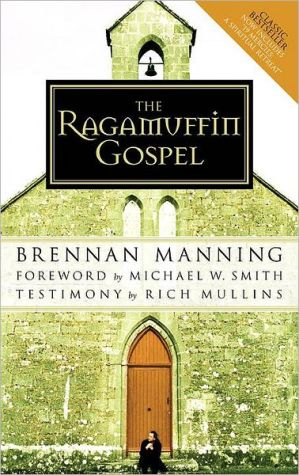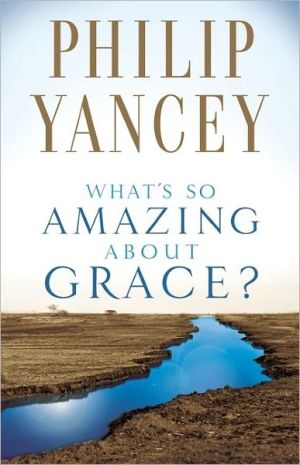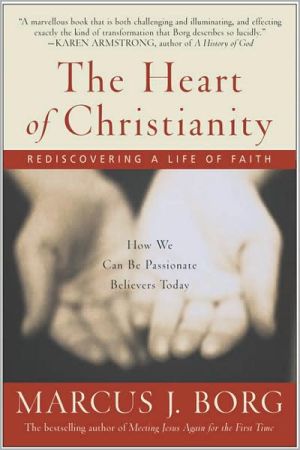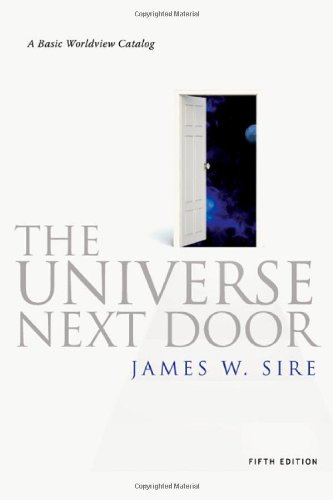The Grace and Truth Paradox: Responding with Christlike Balance
Christians trying to model their lives after Jesus may find that He gets buried under lists, rules, and formulas. Now bestselling author Randy Alcorn offers a simple two-point checklist for Christlikeness based on John 1:14. The test consists of balancing grace and truth, equally and unapologetically. Grace without truth deceives people, and ceases to be grace. Truth without grace crushes people, and ceases to be truth. Alcorn shows the reader how to show the world Jesus -- offering grace...
Search in google:
Christians trying to model their lives after Jesus may find that He gets buried under lists, rules, and formulas. Now bestselling author Randy Alcorn offers a simple two-point checklist for Christlikeness based on John 1:14. The test consists of balancing grace and truth, equally and unapologetically. Grace without truth deceives people, and ceases to be grace. Truth without grace crushes people, and ceases to be truth. Alcorn shows the reader how to show the world Jesus — offering grace instead of the world's apathy and tolerance, offering truth instead of the world's relativism and deception.Grace or Truth…or Both? Truth without grace breeds self-righteousness and crushing legalism. Grace without truth breeds deception and moral compromise. Is it possible to embrace both in balance? Jesus did. Randy Alcorn offers a simple yet profound two-point checklist of Christlikeness. “In the end,” says Alcorn, “we don’t need grace or truth. We need grace and truth. And for people to see Jesus in us, they must see both.” Publishers Weekly Hate the sin but love the sinner is the gist of the paradox explored in this slender point-of-purchase book by minister Alcorn. The author of Deadline draws on his experiences of getting "proabortion" activists, unbelieving academics and his "resistant" father to see the light to argue that Christians must display grace-a spirit of humility, love and inclusion-while also insisting on the truth of Christian doctrine. Truth without grace, he asserts, yields a self-righteous Pharisaism, while grace without truth leads to "moral indifference" and a dilution of Christ's message. Alcorn writes in a contemporary idiom, likening grace and truth to a binary star system or the twin strands of the DNA double helix. But his is a traditional evangelical outlook that combines Biblical literalism, hell-fire and a deep acknowledgment of personal sin. Alcorn registers his fundamentalist views on such topics as relativism on campus, the fallacy of Darwinism and Oprah Winfrey's "have-it-your-way designer religion." But he also chides Christians for their holier-than-thou attitudes ("Jesus," he warrants, "would preach five sermons against self-righteous churches for every one against taverns") and compares himself with evil-doers ("I am Dahmer. I am Mao") in attesting to the fallen state of all humanity and their dependence on God's unmerited grace for salvation. Firm but forbearing, Alcorn's tract is a dose of old-time religion in a smooth modern formulation. (Jan.) Copyright 2003 Reed Business Information.
The GRACE and TRUTH PARADOX\ \ By Randy Alcorn \ Multnomah Publishers\ Copyright © 2003 Eternal Perspective Ministries\ All right reserved.\ ISBN: 1590520653 \ \ \ \ Chapter One\ A Two-Point Checklist of Christlikeness \ Late one rainy night, my wife and I were leaving a movie theater when Nanci noticed an older man in the parking lot leaning on a walker, struggling. I helped him get into his car. Since he was so exhausted, I asked if I could drive him home.\ He declined, but I said we'd follow him home in case he needed help. As he pulled out, driving erratically, we prayed he wouldn't find the street. Our prayers were answered when he got trapped in a fast-food drivethrough line. I opened his door and asked him to move to the passenger seat so I could drive him home, while Nanci followed.\ As I pulled out, two men jumped in front of the car, waving their arms and a cell phone. One shouted, "My wife's having our baby, and I have to get home. Can you drive us?"\ "Well," I said, "this isn't my car, and I don't know this man sitting next to me."\ Sounded pretty lame, don't you think?\ I asked Nanci to drive the older man's car and follow me while I took those guys home (wherever that was). After dropping them off, I hopped back in with George-by now I knew his name-to take him home (wherever that was). When we reached his place, I helped him to his room.\ I found out George had been a political science professor at SanFrancisco State University for twenty-eight years. I realized that most people of George's background would not count Bible-believing Christians among their favorite people! George asked me why we had helped him. I told him we were followers of Christ. I left him my book In Light of Eternity. I prayed God would touch his life and hoped we'd hear the rest of the story in eternity.\ As it turns out, we didn't have to wait that long.\ Two months later my assistant Kathy woke up in the middle of the night experiencing a strange medical problem she'd never had before and hasn't had since. The next day she went to her doctor, bringing with her a copy of In Light of Eternity. When the doctor saw it, he said, "One of my patients was carrying that book the other day-and he told me he wished he could talk to the author."\ Kathy returned to our office with George's phone number. I called him and asked if he wanted me to drop by. He did. George was full of questions. He wanted to know the truth about Jesus Christ. He couldn't get over the idea of grace, that God could really forgive rotten people. He said it sounded "too easy."\ Two hours of discussion followed. I saw God's Spirit at work in George. Finally he prayed, confessed his sin, and accepted Christ's gift of eternal life.\ Now, what are the chances of all these events coinciding?\ No chance at all-they were a series of divine appointments.\ A small act of grace by my wife and me (two small acts, counting the trip to the woman ready to deliver a baby) somehow made an impression on George-and also got into his hands a book that offered him the truth.\ What George saw, what he wrestled with, and what ultimately brought him to Christ was grace and truth.\ What Gives Us Away?\ A friend sat down in a small London restaurant and picked up a menu.\ "What will it be?" the waiter asked.\ Studying the puzzling selections, my friend said, "Uhh ..."\ The waiter smiled. "Oh, a Yank. What part of the States are you from?"\ He hadn't said a word. But he'd already given himself away.\ In the first century, Christ's followers were also recognized immediately. What gave them away?\ It wasn't their buildings. They had none.\ It wasn't their programs. They had none.\ It wasn't their political power. They had none.\ It wasn't their slick publications, TV networks, bumper stickers, or celebrities. They had none.\ What was it?\ With great power the apostles continued to testify to the resurrection of the Lord Jesus, and much grace was upon them all.\ Acts 4:33\ They testified to the truth about Christ and lived by His grace. Truth was the food they ate and the message they spoke. Grace was the air they breathed and the life they lived.\ The world around them had never seen anything like it.\ It still hasn't.\ The Two Essentials\ The only "church growth formula" the early church possessed was the body of truth flowing with the blood of grace. They drew thousands to Jesus by being like Jesus.\ But what does it mean to "be like Jesus"? We could come up with long lists of His character qualities. But the longer the list, the less we can wrap our minds around it. (I can't even juggle three balls. How could I juggle dozens?)\ But what if the character of Christ was reducible to two ingredients?\ In fact, it is:\ In the beginning was the Word, and the Word was with God, and the Word was God.... The Word became flesh and made his dwelling among us. We have seen his glory, the glory of the One and Only, who came from the Father, full of grace and truth.\ John 1:1, 14, emphasis added\ Jesus is full of two things: grace and truth.\ Not "full of patience, wisdom, beauty, compassion, and creativity." In the list there are no commas and only one conjunction-grace and truth. Scripture distills Christ's attributes into a two-point checklist of Christlikeness.\ The baby born in a Bethlehem barn was Creator of the universe. He pitched His tent on the humble camping ground of our little planet. God's glory no longer dwelt in a temple of wood and stone, but in Christ. He was the Holy of Holies.\ But when He ascended back into the wide blue heavens, He left God's shekinah glory-that visible manifestation of God's presence-on earth. We Christians became His living temples, the new Holy of Holies (1 Corinthians 3:16-17; 6:19).\ People had only to look at Jesus to see what God is like. People today should only have to look at us to see what Jesus is like. For better or worse, they'll draw conclusions about Christ from what they see in us. If we fail the grace test, we fail to be Christlike. If we fail the truth test, we fail to be Christlike. If we pass both tests, we're like Jesus.\ A grace-starved, truth-starved world needs Jesus, full of grace and truth.\ So what does this hungry world see when it looks at us?\ Surprised by Grace\ First-century Jewish culture understood truth far better than grace. Grace comes first in John 1:14 because it was more surprising.\ When Jesus stepped onto the world's stage, people could not only hear the demands of truth but also see Truth Himself. No longer fleeting glimmers of grace, but Grace Himself. "Behold, the Lamb of God who takes away the sin of the world" (John 1:29, NASB).\ When God passed in front of Moses, He identified Himself as "abounding in love and faithfulness" (Exodus 34:6). The words translated love and faithfulness are the Hebrew equivalents of grace and truth.\ Grace is a delightful, fragrant word.\ It intrigues.\ Attracts.\ Compels.\ Dazzles.\ It also confounds. It's as though God said, "You know about truth. It's taught in synagogues every Sabbath. But let Me tell you about grace ..."\ The Old Testament teaches the fear of God, spelling out the horrendous consequences of disregarding truth. It presents truth relentlessly. Uzzah was struck down for simply steadying the ark of the covenant with his hand.\ There's certainly grace in the Old Testament-lots of it-but it was overshadowed by truth. The Pharisees, God's self-appointed gatekeepers, never emphasized grace. Christ's hearers had seen truth in the law of Moses, but it was Christ who gave them their first clear view of grace. The law could only reveal sin. Jesus could remove it.\ Some churches today embrace truth but need a heavy dose of grace.\ Other churches talk about grace but cry out for a heavy dose of truth.\ Some time ago, I invited a lesbian activist to lunch. For the first hour, she hammered me, telling of all the Christians who'd mistreated her. She seemed as hard as nails. I listened, trying to show her God's grace, praying she'd see the Jesus she desperately needed. She raised her voice and cursed freely. People stared. But that was okay. Jesus went to the cross for her-the least I could do was listen.\ Suddenly she was crying, sobbing, broken. I reached across the table and took her hand. For the next two hours I heard her story, her heartsickness, her doubts about the causes she championed. I told her about Christ's grace.\ After four hours we walked out of that restaurant, side by side. We hugged.\ In our conversation, truth wasn't shared at the expense of grace, or grace at the expense of truth.\ Birds need two wings to fly. With only one wing, they're grounded. The gospel flies with the wings of grace and truth. Not one, but both.\ Achieving Balance\ The apparent conflict that exists between grace and truth isn't because they're incompatible, but because we lack perspective to resolve their paradox. The two are interdependent. We should never approach truth except in a spirit of grace, or grace except in a spirit of truth. Jesus wasn't 50 percent grace, 50 percent truth, but 100 percent grace, 100 percent truth.\ Truth-oriented Christians love studying Scripture and theology. But sometimes they're quick to judge and slow to forgive. They're strong on truth, weak on grace.\ Grace-oriented Christians love forgiveness and freedom. But sometimes they neglect Bible study and see moral standards as "legalism." They're strong on grace, weak on truth.\ Countless mistakes in marriage, parenting, ministry, and other relationships are failures to balance grace and truth. Sometimes we neglect both. Often we choose one over the other.\ It reminds me of Moses, our dalmatian.\ When one tennis ball is in his mouth, the other's on the floor. When he goes for the second ball, he drops the first. Large dogs can get two balls in their mouth. Not Moses. He manages to get two in his mouth only momentarily. To his distress, one ball or the other spurts out onto the floor.\ Similarly, our minds don't seem big enough to hold on to grace and truth at the same time. We go after the grace ball-only to drop the truth ball to make room for it. We need to stretch our undersized minds to hold them both at once.\ A paradox is an apparent contradiction. Grace and truth aren't really contradictory. Jesus didn't switch on truth and then turn it off so He could switch on grace. Both are permanently switched on in Jesus. Both should be switched on in us.\ What would Jesus do? There is always one answer: He would act in grace and truth.\ Truth without grace breeds a self-righteous legalism that poisons the church and pushes the world away from Christ.\ Grace without truth breeds moral indifference and keeps people from seeing their need for Christ.\ Attempts to "soften" the gospel by minimizing truth keep people from Jesus. Attempts to "toughen" the gospel by minimizing grace keep people from Jesus. It's not enough for us to offer grace or truth.\ We must offer both.\ That's what this little book is all about.\ \ \ \ \ Excerpted from The GRACE and TRUTH PARADOX by Randy Alcorn Copyright © 2003 by Eternal Perspective Ministries\ Excerpted by permission. All rights reserved. No part of this excerpt may be reproduced or reprinted without permission in writing from the publisher. \ \
Acknowledgments8Chapter 1A Two-Point Checklist of Christlikeness9Chapter 2Essential and Inseparable19Chapter 3What Is Grace?27Chapter 4What Is Truth?36Chapter 5A Closer Look at Grace43Chapter 6A Closer Look at Truth51Chapter 7The Grace We Long For61Chapter 8The Truth That Sets Us Free71Chapter 9Grace and Truth Together78Conclusion89Notes93
\ Publishers WeeklyHate the sin but love the sinner is the gist of the paradox explored in this slender point-of-purchase book by minister Alcorn. The author of Deadline draws on his experiences of getting "proabortion" activists, unbelieving academics and his "resistant" father to see the light to argue that Christians must display grace-a spirit of humility, love and inclusion-while also insisting on the truth of Christian doctrine. Truth without grace, he asserts, yields a self-righteous Pharisaism, while grace without truth leads to "moral indifference" and a dilution of Christ's message. Alcorn writes in a contemporary idiom, likening grace and truth to a binary star system or the twin strands of the DNA double helix. But his is a traditional evangelical outlook that combines Biblical literalism, hell-fire and a deep acknowledgment of personal sin. Alcorn registers his fundamentalist views on such topics as relativism on campus, the fallacy of Darwinism and Oprah Winfrey's "have-it-your-way designer religion." But he also chides Christians for their holier-than-thou attitudes ("Jesus," he warrants, "would preach five sermons against self-righteous churches for every one against taverns") and compares himself with evil-doers ("I am Dahmer. I am Mao") in attesting to the fallen state of all humanity and their dependence on God's unmerited grace for salvation. Firm but forbearing, Alcorn's tract is a dose of old-time religion in a smooth modern formulation. (Jan.) Copyright 2003 Reed Business Information.\ \
